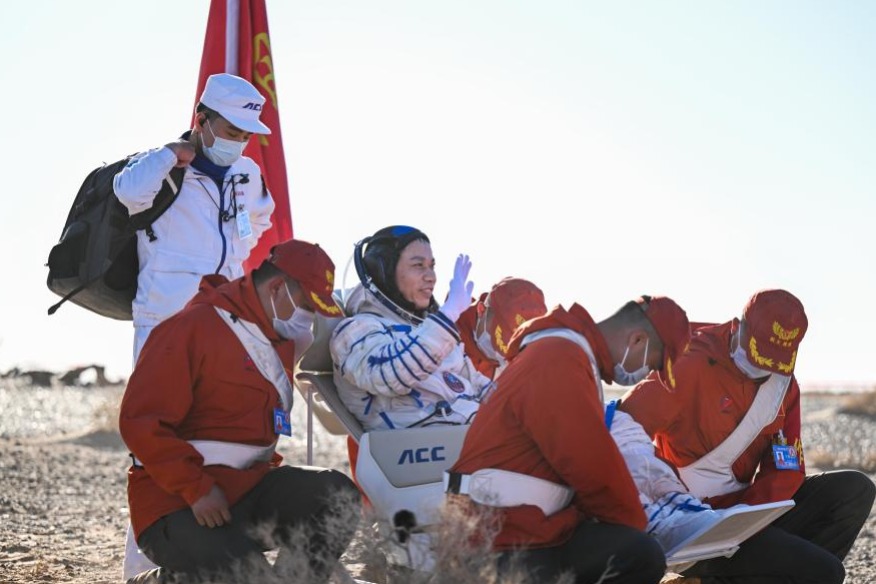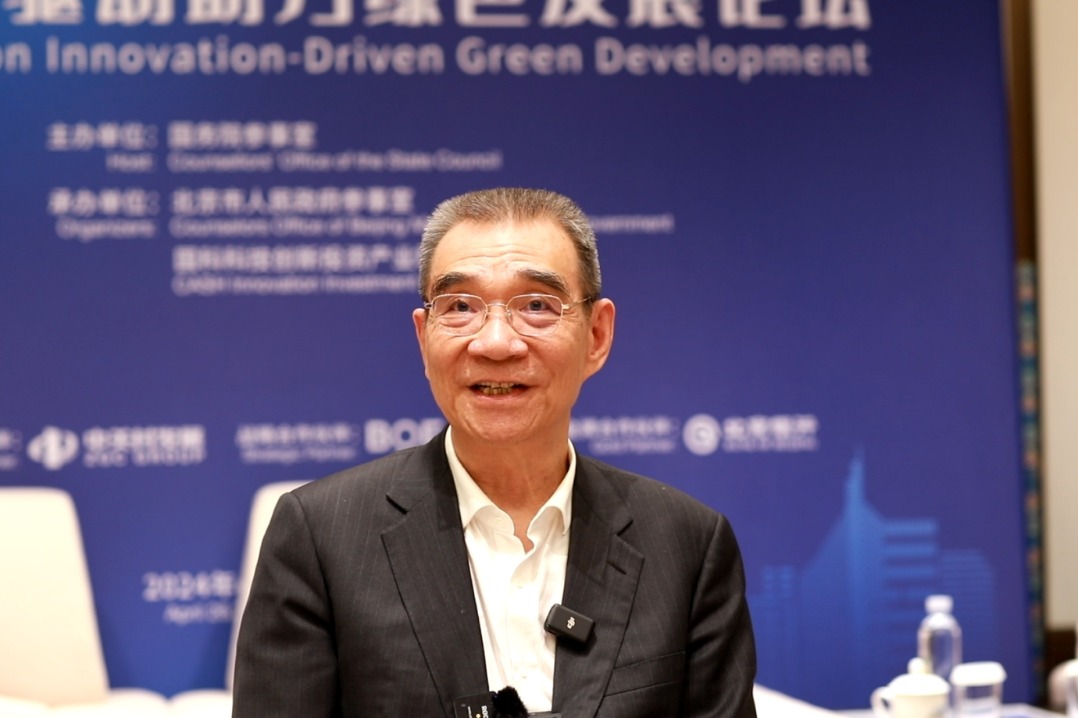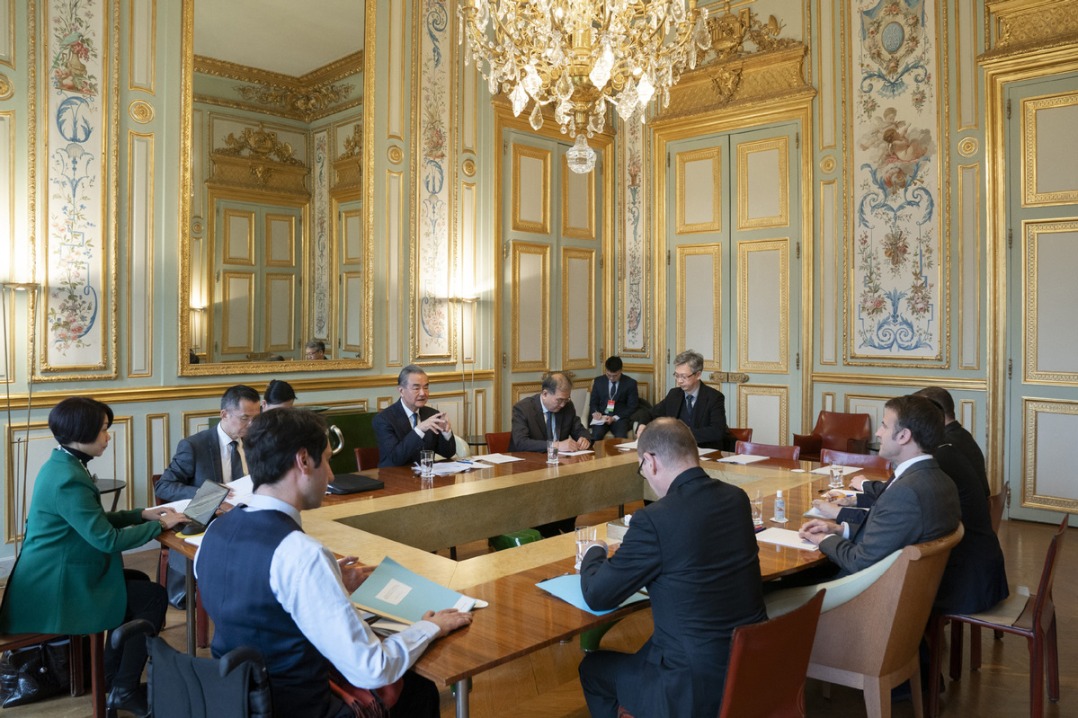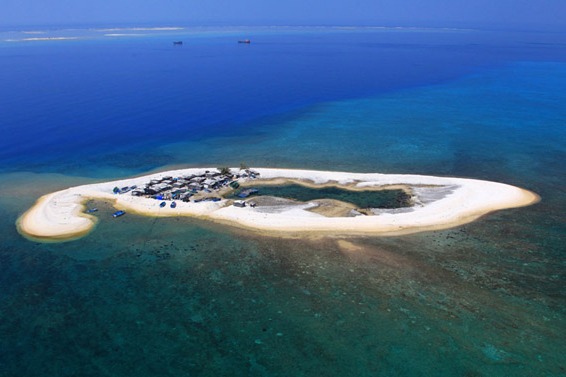Building bloc

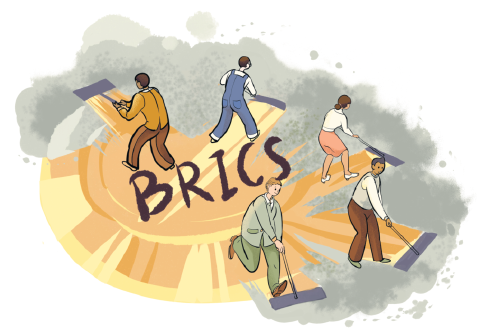
BRICS countries should bolster their cooperative resilience amid challenges
As an important platform for cooperation between emerging economies and developing countries, BRICS has further expanded and deepened South-South cooperation, and its status and role in global governance have become increasingly prominent. The BRICS countries represent more than 40 percent of the world population, about 25 percent of the global GDP and about 20 percent of world trade.
Against the backdrop of the current unpredictable international situation and the intertwined pandemic, the BRICS mechanism, like other multilateral cooperation mechanisms, has encountered new problems and challenges in the process of promoting the convergence of interests.
The advancement of multilateral cooperation mechanisms is vulnerable to changes in the political ecology of member countries, and factors such as policy adjustments often constrain the smooth advancement of multilateral cooperation mechanisms. BRICS cooperation also faces such challenges. BRICS countries need to seek common values and shared ideas in the political sphere and achieve consensus on some fundamental positions. For example, BRICS countries can deepen their cooperation under the broad framework of the United Nations and bridge the internal cracks that have emerged on some political issues in BRICS countries.
On the other hand, as the competition between China and the United States intensifies, the US government is seeking to strengthen its hegemonic position and trying to increase the divisions and disintegration of the BRICS countries. In recent years, for example, India has continued to strengthen its defense cooperation with the US and has begun to join the US-led security alliance. The Sino-Indian bilateral relationship has been severely tested by the border tensions, highlighting the challenges of political mutual trust within the BRICS countries.
But although the BRICS countries have their differences, and do not share the same interests and policy ideas on some specific issues, as long as they respect each other's core interests and strive to reach a clear consensus on major concerns, they can form a solid and firm cooperation mechanism.
BRICS countries should not only see the impact of bilateral relations on multilateral cooperation, but also learn to manage bilateral differences through multilateral relations. However, this does not mean that the BRICS mechanism should be used to directly intervene and deal with the bilateral problems of member countries, but rather the members should work to create a suitable atmosphere for dialogue in which member countries can negotiate and resolve conflicts on their own. In such an atmosphere, BRICS countries should first focus on the peaceful settlement of international disputes and the non-use of force or the non-threat of force as a bottom line of BRICS cooperation.
Meanwhile, the COVID-19 pandemic has had a serious impact on world economic development and may continue to affect the direction of the world economy. The deterioration of the external economic environment has profoundly affected the economic and social development of the BRICS countries. Among the BRICS countries, although China was the first to resume work and production due to the effective control of the pandemic, the pandemic is still serious in Brazil and other countries, and their economies are facing greater downward pressure. Developed and emerging market economies are experiencing huge negative output gaps and high unemployment rates. Faced with the severe economic situation at home and abroad, BRICS countries must tighten the ties of common interests and work together.
Whether BRICS can play a bigger role or achieve more results is closely related to the following topics. First, the BRICS members should strengthen their cooperation in industrial and innovative development and form a better mechanism. The cooperation not only refers to the transfer of technology, but also finding the financial means based on the New Development Bank. The world is going through a very complex period with the rise of inflation and unemployment. Whether the BRICS countries will be affected more or less depends on the resilience of their internal economies. As a result, the countries have to coordinate together, which is an important element in terms of improving stability and helping promote sustainable and inclusive growth.
Besides, poverty alleviation, rural revitalization and food production are key elements for the BRICS mechanism. BRICS countries need to bolster those together by exchanging experience from one country to another. For example, in poverty alleviation, Brazil and China have extensive experience together with India that can help the Global South.
Last but not least, improving the institutionalization of the BRICS mechanism is essential. So far, BRICS has been a platform for dialogue, but BRICS should not position itself as a platform for dialogue only and must achieve some degree of institutionalization. For this purpose, BRICS should accept new members. Now BRICS have Argentina, Indonesia and other countries banging on the door to be part of the BRICS mechanism. More countries can bring more experiences, resources and policies, promoting the mechanism to be more effective. The nature of creating the BRICS mechanism is to be a voice for developing countries to exchange policies that can help small, medium and large developing economies to achieve prosperity.
Looking ahead, BRICS will further strengthen consensus and cooperation, accelerate the pace on the path of institutionalization, and contribute to the transformation of the global governance system.
The author is former minister of tourism of Brazil and a professor of public policy at the School of Public Policy and Management at Tsinghua University. The author contributed this article to China Watch, a think tank powered by China Daily.The views do not necessarily reflect those of China Daily.
Contact the editor at editor@chinawatch.cn.
















